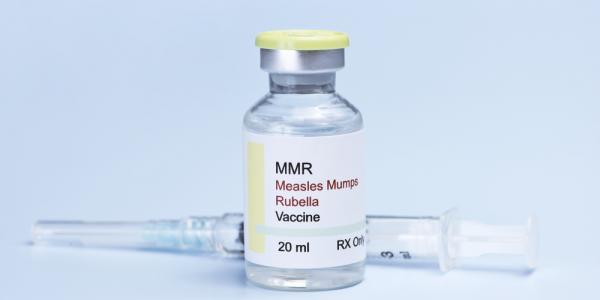Measles: An Unwanted Souvenir?

Know before you go.
Measles remains a common disease in many parts of the world. Each year approximately 10 million people are infected with the measles virus, and the disease kills almost 90,000 worldwide. Measles disease still occurs within the United States however, most cases are the result of international travel. Individuals who do not have immunity to measles can become infected during travel to other countries. They then carry the measles virus back home and spread the disease to others who are unprotected leading to outbreaks.The state of Michigan reported active cases of measles in returning travelers as recently as October 23, 2018.
Since January 2018 travel warnings for measles disease have been posted in more than 60 different countries including The United Kingdom, Italy, France, Greece Brazil, Peru, Israel, Indonesia, Philippines, and multiple countries in Africa. The risk for disease is greater in more populated areas which includes many common travel destinations around the world.
How is measles spread?
Measles is a highly contagious viral infection which spreads easily through the air by coughing, sneezing, or simply breathing, just like the common cold. It is so contagious that if one person has it, 90% of the people close to that person who are not immune will also become infected. Infected people can spread measles to others beginning four days before through four days after a rash appears.
What are the symptoms of measles?
Measles symptoms typically include:
- High fever (may spike to more than 104°F)
- Cough
- Runny nose
- Red, watery eyes
- Rash breaks out 3-5 days after symptoms begin. The rash may not occur in individuals who have weakened immune system due to a chronic disease or certain medications.
Complications:
Complications of measles can include inner ear infections, hearing loss, pneumonia, and rarely swelling of the brain, also known as encephalitis.
Most individuals in the United States are protected through immunization. Those who do not immunize are protected by a concept known as “herd immunity”.
The best way to protect yourself and your loved ones from measles is by getting vaccinated. The measles-mumps-rubella (MMR) vaccine protects against all 3 of these viral diseases. Two doses of MMR vaccine provide 97% protection against measles. Anyone who is not protected against measles is at risk of getting infected when they travel internationally.
Before any international travel—
- Infants 6 months through 11 months of age should have 1 dose of MMR vaccine.
- Children 12 months of age or older, should have 2 doses, each dose separated by at least 28 days.
- Adolescents and adults who have not had measles disease or been vaccinated should get 2 doses separated by at least 28 days.
In addition to infants, others at high risk for complications from measles include those with chronic diseases or impaired immunity.
Visit with a health care provider 4 to 6 weeks before you travel abroad. Receiving the MMR vaccine in advance of your travels ensures that your body has time to respond so that you are protected from measles before you leave the the USA.
Pregnant or immunocompromised individual may not be able to receive the vaccine and should discuss this and other travel associated health risks with a knowledgeable health care provider prior to travel.
For more information see the Centers for Disease Control’s: What can travelers do to prevent measles? and visit their Travelers’ Health website to review information specific for your destination, and to find other tips to keep you healthy while you travel.
Related Articles

Sinuses and Michigan
If you live in Michigan long enough, you will most likely become very familiar with “sinus infections”. The two seem to go “mitten in mitten.”
.png)
Human Papillomavirus and Cancer
Regardless of your personal stance on vaccines, many people wonder why some vaccines are recommended or used. This article reviews Human Papillomavirus, the diseases it can cause, and reasoning behind considering this vaccine.


Belly Breathing for Better Health
Practice Belly breathing to help treat GastroEsophageal Reflux Disease (GERD).





